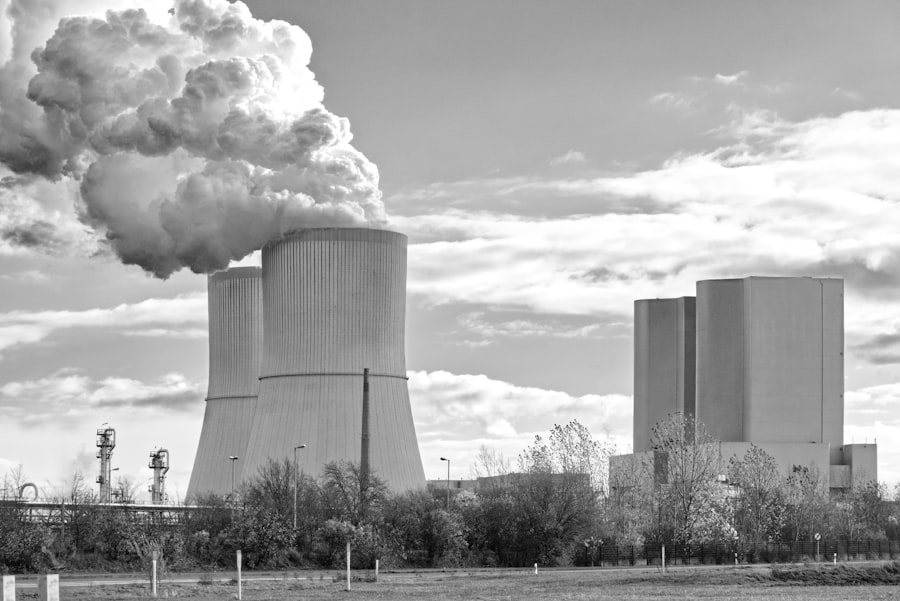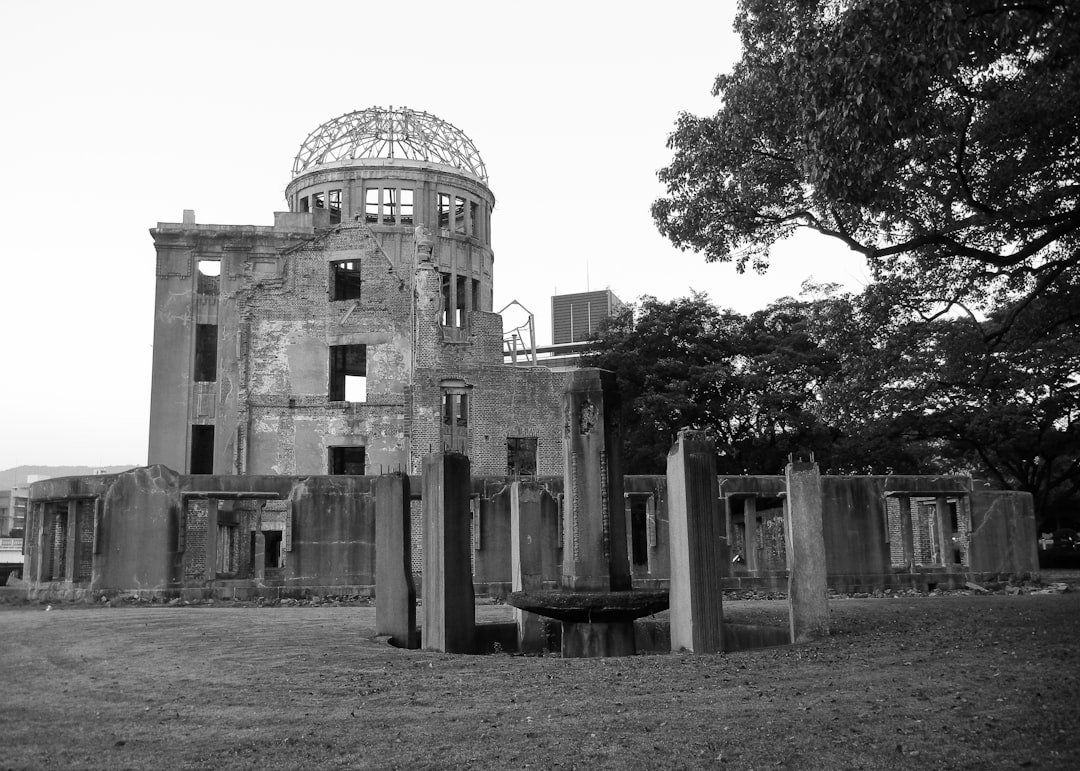Carl Sagan, the renowned astrophysicist, cosmologist, and science communicator, held a nuanced perspective on nuclear power that reflected both its potential and its perils. He recognized the dual-edged nature of this energy source, understanding that while it could serve as a powerful tool for progress, it also posed significant risks to humanity and the planet. Sagan’s insights were shaped by his deep commitment to scientific inquiry and his belief in the importance of ethical considerations in technological advancement.
His views on nuclear power were not merely academic; they were informed by a profound concern for the future of civilization and the environment. Sagan’s approach to nuclear power was characterized by a blend of optimism and caution. He acknowledged the potential benefits of harnessing nuclear energy as a means to meet the growing demands for power in an increasingly industrialized world.
However, he also warned against the dangers associated with its misuse and the catastrophic consequences that could arise from nuclear accidents or proliferation. This duality in Sagan’s thinking reflects a broader tension in society’s relationship with nuclear technology, one that continues to resonate in contemporary discussions about energy policy and environmental sustainability.
Key Takeaways
- Carl Sagan believed that nuclear power could be a valuable tool for addressing energy needs and climate change.
- Sagan highlighted the potential for nuclear power to provide clean, reliable energy with minimal greenhouse gas emissions.
- Sagan also warned of the risks associated with nuclear power, including accidents, waste disposal, and the potential for nuclear proliferation.
- Sagan expressed concerns about the connection between nuclear power and the spread of nuclear weapons, advocating for international cooperation and regulation.
- Sagan emphasized the need for responsible usage and strict regulation of nuclear power to minimize risks and ensure ethical considerations are addressed.
The benefits of nuclear power according to Carl Sagan
In his exploration of nuclear power, Sagan highlighted several key benefits that made it an attractive option for energy production. One of the most significant advantages he identified was its ability to generate large amounts of energy with relatively low greenhouse gas emissions. In an era increasingly concerned with climate change, Sagan argued that nuclear power could play a crucial role in reducing humanity’s carbon footprint.
He believed that transitioning to nuclear energy could help mitigate the impacts of fossil fuel consumption, which was a major contributor to global warming. Moreover, Sagan pointed out that nuclear power plants have a high capacity factor compared to renewable energy sources like wind and solar. This means that they can produce electricity consistently and reliably, providing a stable energy supply that is essential for modern economies.
He recognized that as populations grow and energy demands increase, the need for dependable energy sources becomes ever more critical. In this context, Sagan viewed nuclear power as a viable solution to meet these challenges while also addressing environmental concerns.
The risks and drawbacks of nuclear power as outlined by Carl Sagan

Despite his recognition of the benefits of nuclear power, Sagan was acutely aware of the inherent risks associated with its use. He articulated concerns about the potential for catastrophic accidents, such as those seen at Chernobyl and Fukushima, which could have devastating consequences for human health and the environment. Sagan emphasized that even with stringent safety measures, the possibility of human error or unforeseen technical failures could lead to disasters that would overshadow any benefits derived from nuclear energy.
Additionally, Sagan raised alarms about the long-term management of nuclear waste, which remains hazardous for thousands of years. He questioned the feasibility of safely storing radioactive materials and highlighted the ethical implications of leaving such burdens for future generations. The challenge of ensuring that nuclear waste does not contaminate ecosystems or pose risks to human health was a significant concern for Sagan, who believed that these issues needed to be addressed before fully embracing nuclear power as a sustainable energy solution.
Sagan’s concerns about nuclear proliferation and weapons
| Concerns | Metrics |
|---|---|
| Nuclear Proliferation | Number of countries with nuclear weapons |
| Nuclear Weapons | Number of nuclear warheads worldwide |
| Arms Control | International treaties and agreements |
| Disarmament | Reduction of nuclear stockpiles |
Sagan’s apprehensions extended beyond the realm of energy production; he was deeply concerned about the proliferation of nuclear weapons and the potential for global conflict. He understood that the same technology used for generating electricity could also be repurposed for creating devastating weapons of mass destruction. This dual-use nature of nuclear technology posed a significant threat to international security, and Sagan advocated for stringent controls and regulations to prevent the spread of nuclear arms.
In his writings and public speeches, Sagan often emphasized the moral responsibility that comes with possessing such powerful technology. He argued that nations must work collaboratively to establish frameworks that would limit nuclear proliferation and promote disarmament. His vision was one where scientific knowledge was harnessed for peaceful purposes rather than destructive ends, reflecting his belief in the potential for humanity to rise above its baser instincts through cooperation and understanding.
Sagan’s advocacy for responsible nuclear power usage and regulation
Recognizing both the potential benefits and risks associated with nuclear power, Sagan became an advocate for responsible usage and regulation of this energy source. He believed that any advancement in nuclear technology must be accompanied by rigorous oversight to ensure safety and accountability. Sagan called for transparent regulatory frameworks that would involve not only government agencies but also independent scientists and public stakeholders in decision-making processes.
Sagan’s advocacy extended to promoting public awareness about nuclear issues. He understood that informed citizens are essential for holding governments accountable and ensuring that policies reflect ethical considerations. By fostering a well-informed public discourse on nuclear power, Sagan aimed to empower individuals to engage with complex scientific and ethical questions surrounding energy production and environmental stewardship.
The ethical implications of nuclear power from Sagan’s perspective

From Sagan’s perspective, the ethical implications of nuclear power were profound and multifaceted.
The potential consequences of nuclear accidents or misuse raised questions about intergenerational justice—how current generations manage resources and technologies will impact future generations’ ability to thrive.
Sagan also emphasized the importance of considering the broader societal implications of nuclear power. He argued that decisions regarding energy production should not be made solely based on economic factors but should also take into account their effects on human health, environmental sustainability, and global security. This holistic approach reflected Sagan’s belief in the interconnectedness of all life on Earth and underscored his commitment to ethical decision-making in science and technology.
Sagan’s proposed solutions for addressing nuclear power challenges
To address the challenges posed by nuclear power, Sagan proposed several solutions aimed at promoting safety, sustainability, and ethical responsibility. One key recommendation was investing in research and development to improve reactor designs and waste management technologies. By advancing scientific knowledge in these areas, Sagan believed it would be possible to mitigate some of the risks associated with nuclear energy while maximizing its benefits.
Additionally, Sagan advocated for international cooperation in managing nuclear technology. He envisioned a world where countries would work together to establish common standards for safety and security, sharing best practices and lessons learned from past experiences. This collaborative approach would not only enhance safety but also foster trust among nations, reducing tensions related to nuclear proliferation.
Sagan’s stance on the role of nuclear power in addressing climate change
Sagan was a vocal proponent of utilizing nuclear power as part of a comprehensive strategy to combat climate change. He recognized that transitioning away from fossil fuels was imperative for reducing greenhouse gas emissions and mitigating global warming’s impacts. In this context, he viewed nuclear energy as a critical component of a diversified energy portfolio that could help achieve sustainability goals.
However, Sagan also cautioned against relying solely on nuclear power as a panacea for climate change. He emphasized the importance of integrating renewable energy sources into the energy mix while improving energy efficiency measures. By adopting a multifaceted approach to energy production, Sagan believed society could create a more resilient and sustainable future while addressing climate challenges effectively.
Sagan’s influence on public perception and policy regarding nuclear power
Carl Sagan’s contributions to the discourse surrounding nuclear power significantly influenced public perception and policy decisions throughout his lifetime. His ability to communicate complex scientific concepts in accessible language helped demystify nuclear technology for lay audiences.
Sagan’s advocacy for responsible governance and ethical considerations resonated with policymakers as well. His calls for transparency in regulatory processes and public engagement helped shape discussions around nuclear safety standards and non-proliferation efforts. By framing these issues within a broader ethical context, Sagan encouraged leaders to consider not just the technical aspects of nuclear power but also its societal implications.
The legacy of Sagan’s ethical stance on nuclear power
The legacy of Carl Sagan’s ethical stance on nuclear power continues to reverberate in contemporary debates about energy policy and environmental responsibility. His insistence on integrating scientific understanding with ethical considerations has inspired generations of scientists, policymakers, and activists alike. As society grapples with pressing challenges related to climate change, resource management, and technological advancement, Sagan’s insights remain relevant.
Moreover, his emphasis on public engagement in scientific discourse has paved the way for greater awareness around issues like climate change and energy production. By advocating for informed citizenry and responsible governance, Sagan contributed to a cultural shift toward recognizing the importance of ethics in science and technology—a legacy that endures as new generations confront similar dilemmas.
Sagan’s enduring impact on the nuclear power debate
In conclusion, Carl Sagan’s views on nuclear power encapsulate a complex interplay between optimism for technological advancement and caution regarding its potential consequences. His advocacy for responsible usage, ethical considerations, and international cooperation continues to resonate in discussions about energy policy today. As society navigates the challenges posed by climate change and seeks sustainable solutions, Sagan’s insights serve as a guiding light—reminding humanity of its moral responsibilities in harnessing powerful technologies like nuclear energy.
Sagan’s enduring impact on the debate surrounding nuclear power underscores the necessity of integrating scientific knowledge with ethical considerations in decision-making processes. His legacy inspires ongoing dialogue about how best to balance progress with responsibility—a conversation that remains vital as humanity strives toward a sustainable future amidst an ever-evolving technological landscape.
Carl Sagan, a renowned astronomer and science communicator, was deeply concerned about the ethical implications of nuclear weapons. His views on the subject were not only rooted in scientific understanding but also in a profound sense of responsibility towards humanity and the planet. Sagan advocated for the reduction of nuclear arsenals and emphasized the catastrophic consequences of nuclear war. For those interested in exploring more about the ethical considerations surrounding nuclear weapons and related scientific insights, you might find this article insightful. It delves into various aspects of nuclear ethics and the role of scientists in advocating for peace.
WATCH THIS! 🤯America Tried to Nuke the Moon
FAQs
What were Carl Sagan’s ethical views on nuclear power?
Carl Sagan was a proponent of nuclear power as a means of addressing the world’s energy needs. He believed that nuclear power could provide a clean and efficient source of energy, and that it could help reduce the reliance on fossil fuels and mitigate the impacts of climate change.
Did Carl Sagan advocate for the use of nuclear weapons?
No, Carl Sagan was a vocal critic of nuclear weapons and advocated for their reduction and eventual elimination. He was a strong supporter of arms control and disarmament efforts, and spoke out against the dangers of nuclear proliferation.
How did Carl Sagan view the ethical implications of nuclear energy?
Carl Sagan recognized the potential risks and ethical implications of nuclear energy, particularly in terms of safety and waste management. He emphasized the need for stringent safety regulations and responsible waste disposal practices to minimize the potential negative impacts of nuclear power.
Did Carl Sagan believe in the ethical responsibility of scientists and policymakers in relation to nuclear issues?
Yes, Carl Sagan believed that scientists and policymakers had a moral and ethical responsibility to carefully consider the implications of nuclear technology and to make informed decisions that prioritized safety, security, and environmental protection. He advocated for transparency and public engagement in nuclear policy discussions.
